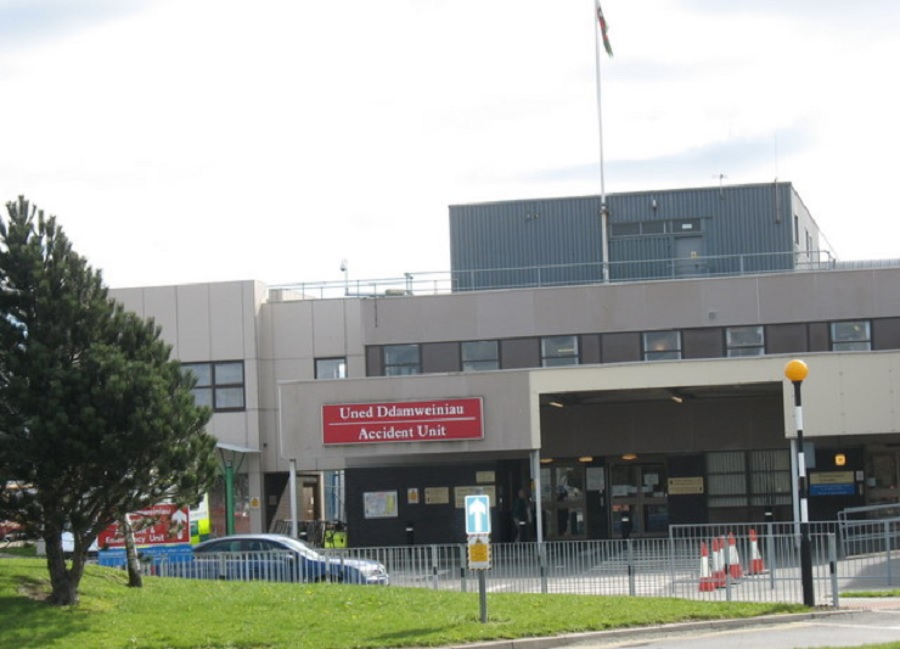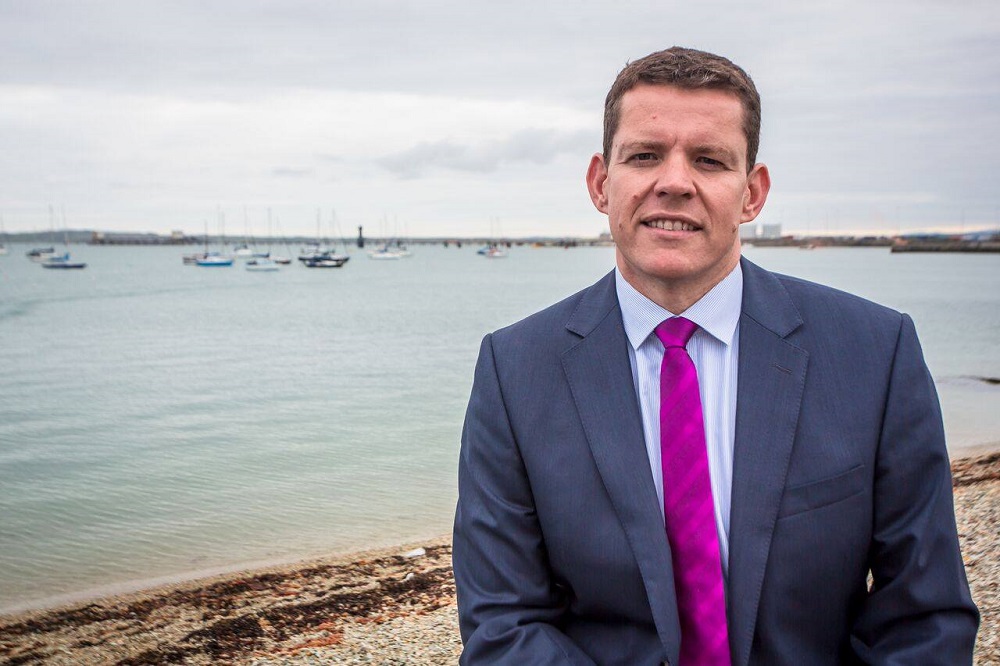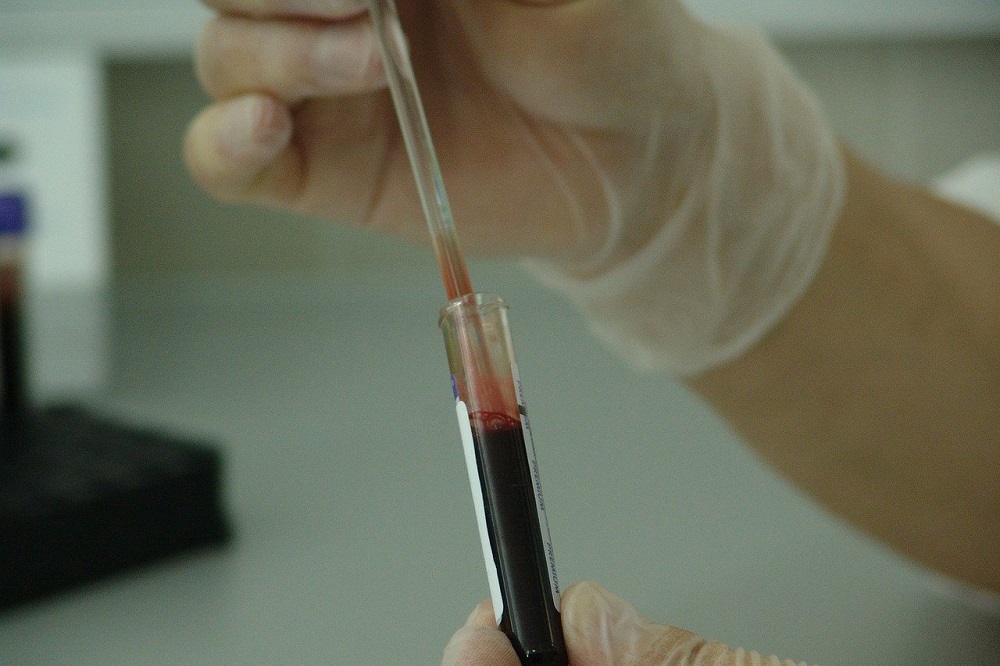News in brief: Hospital cancels ops and schools delay reopening due to Covid outbreak

Ysbyty Gwynedd has cancelled the majority of planned operations due to a coronavirus outbreak.
On Monday health officials confirmed 49 patients across five wards had tested positive for the virus and that all staff and patients would be tested for the virus.
The “majority” of planned operations will be cancelled at the hospital for two weeks because of the outbreak but emergency surgery, diagnostic services, oncology and outpatient appointments will continue.
Alyson Constantine, the hospital’s acute care site director, told BBC Wales: “This decision has been made to enable us to provide extra capacity on site due to the number of people being treated for Covid-19 infection at the hospital.
“Cancelling elective operations is not a decision that we have taken lightly and we would like to apologise for any distress and disappointment this has inevitably caused. The safety of our patients and staff is incredibly important and it was necessary to make these difficult decisions to ensure this.”
Gwynedd currently has a case rate of 85.1 cases per 100,000 and some of its neighbouring local authorities have among the highest case rates in Wales, such as Anglesey (101.4) and Flintshire (97.4.
Anglesey Council made the decision to delay the return of Foundation Phase pupils until at least next week due to the spike in cases.
Council Leader Llinos Medi said: “Parents, school staff and our communities are rightly concerned about the real threat posed by Coronavirus. Given the high infection rate here, we will continue to take all reasonable steps to protect the health of pupils, school staff and wider communities.”
Schools in Bangor have also delayed their phased return by a week “due to the increase in Covid-19 cases at Ysbyty Gwynedd”.
Meanwhile, a further 21 people have died with coronavirus and 312 new cases of virus have been confirmed in today’s update from Public Health Wales.
Cardiff and Vale health board, Hywel Dda and Swansea Bay, each recorded five new deaths since yesterday’s report.
Cwm Taf Morgannwg record four further deaths and there were two in Betsi Cadwaladr University Health Board.
Although cases across Wales are continuing to fall, Cardiff reported 40 new positive tests for the virus since yesterday and now has the worst weekly infection rate in the country at 103. 8 per 100,000 people, the highest since the last week of January.
The most recent PHW analysis highlights a significant increase in cases particularly among the over-60s age group in the capital.
Cardiff and Vale and Anglesey (101.4) are the only two local authorities to have infection rates in three figures.
Cardiff also has the highest positive test rate in Wales at 9.7% per 100,000 tests over the past seven days.
The weekly case rate across Wales has dropped to 75.4 from 75.7 since yesterday and the positive test proportion is 6.85, down from 6.9% yesterday.
In total, 889,270 people have received a first dose of Covid vaccine.

Government accused of seriously hampering effective scrutiny
The Welsh Government has been accused of hampering the process of effective scrutiny by taking too long to respond to letters or Written Senedd Questions.
In one case it took the government 23 weeks to reply to an appeal to make it necessary to wear face masks to be worn in supermarkets. By the time the response came, the mask wearing rule had already been in place for 21 weeks.
The letter, dated 9 February 2021 and which went on to two pages, described at length the regulations brought in on 14 September.
In another example, two emails were sent to Welsh Government on 18 June 2020 regarding concerns about delays to receiving test results and receiving test results in error. A response to both emails was received eight months later.
Plaid Cymru’s Shadow Minister for Health and Finance, Rhun ap Iorwerth MS says the role of opposition is to question and scrutinise the work of the Government but this is “seriously hampered” by the poor handling of responses to correspondence and written questions.
“When a day is said to be a long time in politics, imagine how much can change in five months, and yet this is the length of time it can take to get a response to a written question from Labour Welsh Government,” he said.
“Our Senedd website boasts ‘Effective scrutiny of government is at the heart of any democratic process’ but I would argue that this is seriously hampered by the painfully slow response times to written questions.”
Whilst calling for faster response times, Mr ap Iorwerth also called into question the use of resource in preparing such lengthy out-of-date responses:
“The time spent in answering this particular call for regulatory changes, when so much time had passed, makes little sense. I’d rather have a brief and timely answer than a lengthy one that’s past its sell-by date.”

Ban on use of UK plasma to manufacture medicines lifted
Health Minister Vaughan Gething has announced the ending of a ban on using UK plasma to manufacture medicines.
The lifting of the ban follows a review by the Commission on Human Medicine (CHM) and the Medicines and Healthcare products Regulatory Agency (MHRA).
It was introduced in the UK in 1999 in response to the variant Creutzfeld–Jakob (vCJD) epidemic, believed to be associated with the consumption of meat products infected with BSE, commonly known as “mad cow disease”.
Since the introduction of the ban, plasma-derived medicinal products have had to be imported, with the main source at present being the USA.
“The need to import plasma into the UK has meant NHS Wales has had to prioritise supply of medicines to patients with the highest clinical need,” Mr Gething said.
“The pandemic is placing further pressures on this supply due to the increased need for blood plasma in the development of new Covid-19 medicines coupled with the falling numbers of blood plasma donations.
“Following multiple reviews of the evidence, we have been advised that plasma sourced in the UK is safe for the manufacture of these medicines and as such, I along with the other health ministers across the UK have lifted the ban to potentially save their lives and help people to manage their conditions.”

New plan to futureproof manufacturing in Wales
A new action plan to help secure the long-term future of manufacturing in Wales has been launched by Welsh Government.
The sector provides employment to 145,000 people across the nation and is the largest contributor in terms of Gross Value Added (GVA) to the Welsh economy.
The new plan identifies the steps needed to develop a resilient, high value manufacturing sector with a highly skilled and flexible workforce able to deliver the products, services and technologies necessary for the future Welsh economy.
The plan also addresses the issues of climate change and the need to decarbonise and adapt to technological changes, including automation, digitalisation and a more connected environment.
“Manufacturing is going through one of the most intense periods of change in its history with the coronavirus pandemic, leaving the EU, climate change and emerging technologies all having a profound effect,” Economy Minister Ken Skates said.
“Manufacturing in Wales has already shown what can be achieved in this space through its success in producing made-in-Wales PPE at a time when international supply chains were under pressure.
“Embracing the use of alternative, lower embedded carbon materials, increasing automation and digitalisation will also be key to the future success of the sector.”

Fire chief bows to pressure from angry staff
Jez Hemming, local democracy reporter
A fire chief has sanctioned a review into his service’s promotion processes after a controversial report said there weren’t enough people of sufficient “quality” to permanently appoint.
The announcement was made after operational staff told a union they felt “insulted” by the study into firefighter “Future Leader” apprentices, which was shared with executive panel members last week.
The report said the three-year scheme would give apprentices “an increased potential to progress beyond the firefighter role and into supervisory, middle and senior manager positions”.
It also said “a reduction in the quality of candidates applying for promotion has led to an inability to permanently appoint” from within the ranks, in sufficient numbers.
The report said North Wales Fire and Rescue Service (NWFRS) had tried to prepare staff by holding “masterclasses” for those “engaging with promotional processes”.
It had also coached prospective candidates in areas such as “written communications, media relations, finance, having difficult conversations, corporate officer requirements and political awareness”.
NWFRS chief officer Simon Smith said the study “was not intended in any way to insult existing staff” or imply those applying for promotion “lacked in quality and numbers”.
More than 50% of the service’s operational managers are in temporary roles, despite having satisfied national competencies – some for up to four years and up to three grades higher than their permanently contracted jobs.
Staff argued many in those roles had passed nationally recognised qualifications but were being overlooked for permanent managerial positions.
Many serving and former personnel of NWFRS contacted the Local Democracy Reporting Service (LDRS) to voice anger over what they saw as a slight on the ability of serving firefighters.
After having emergency meetings with concerned staff chief fire officer (CFO) Smith struck a conciliatory tone and pledged to work with unions.
He said: “I feel it is important to stress a paper presented at a recent meeting of the Fire Authority’s Executive Panel regarding our Future Leader Apprenticeship opportunities was not intended in any way to insult existing staff or imply members of the service applying for promotion lacked in quality and numbers.
“In fact, in the last two years, more staff have engaged in the promotion process.”
He added: “We have been looking into the issues raised by FBU members recently – and this has involved meeting and corresponding with members of staff as well as with FBU representatives, to listen and to gain a better understanding of everyone’s concerns.
“It is really positive together we can address the concerns raised and work to improve the policies we have in place.”
It is believed the review will be conducted by someone outside the North Wales service and will aim to improve the “consistency and transparency” of the process and recognise the “valuable skills and contribution of staff”.
The move has been mutually agreed with lead officials of the North Wales branch of the Fire Brigades Union.
In a statement it said: “Working together collaboratively with senior managers is crucial in achieving a constructive way forward for the organisation as a whole.
“We have listened to the concerns raised by staff and look forward to working in partnership to bring about these changes and improvements, building on the positive progress already achieved over recent months. We are committed to starting on this work immediately.”
Whistleblowers contacted the LDRS to say the organisation needed a “cultural review” of practices within the service and one said today he hoped the study into promotions would “look into that as well”.

Support our Nation today
For the price of a cup of coffee a month you can help us create an independent, not-for-profit, national news service for the people of Wales, by the people of Wales.





